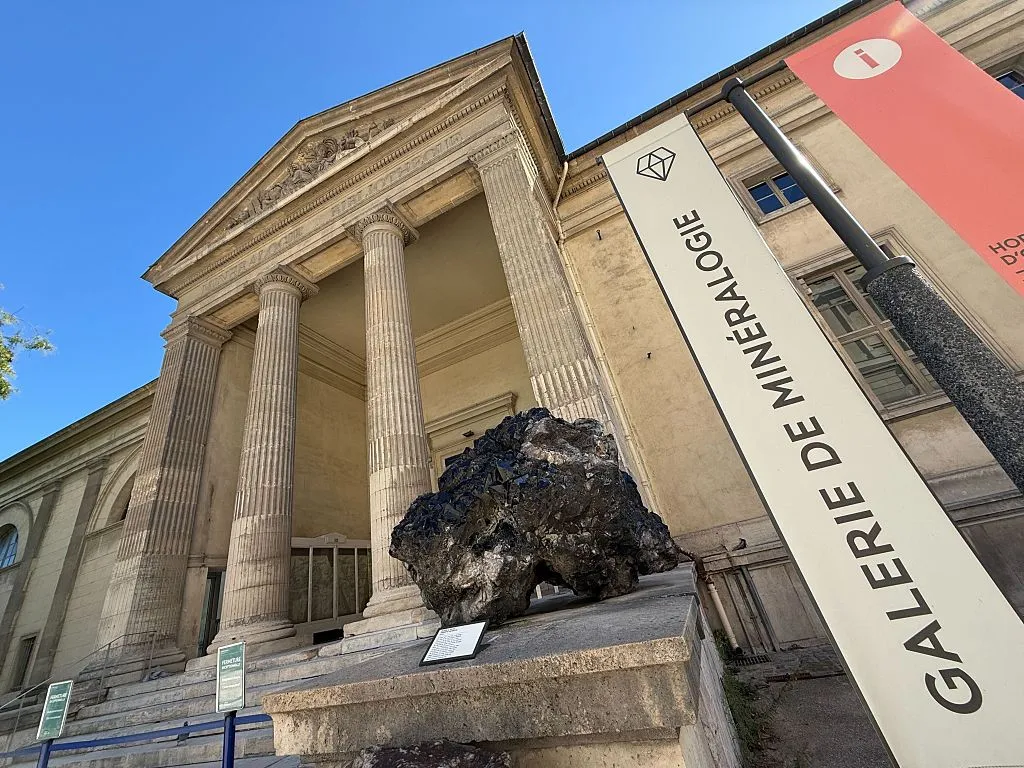
The National Museum of Natural History in Paris, France, was broken into early Tuesday morning and several specimens worth €600,000 ($711,000) were stolen, France24 reported.
The museum is known for its dinosaur skeletons and taxidermy, as well as its geology and mineralogy holdings.
Intruders reportedly breached the museum using an angle grinder and a blowtorch, before stealing several valuable items from its collection.
“The theft concerns several specimens of native gold from the national collections held by the museum,” the museum’s press office told Agence France-Presse. “While the stolen specimens are valued at around 600,000 euros based on the price of raw gold, they nevertheless carry an immeasurable heritage value.”
A native gold and quartz sample measuring between 3.3 to 3.5 inches is among the known losses. Native gold is a metal alloy comprising unrefined gold and silver.
It remains unclear whether the museum’s alarm and surveillance systems, which were previously disabled by a cyberattack in July, were working at the time of the theft.
Authorities believe the thieves had executed similar jobs before, as they operated professional equipment and targeted specific items. No suspect has been caught or charged in the burglary.
The museum closed its mineralogy gallery on Tuesday to further examine its collection following the losses.
In a similar theft, four gold artifacts on loan from the National History Museum of Romania were taken from the Drents Museum in Assen, the Netherlands.

